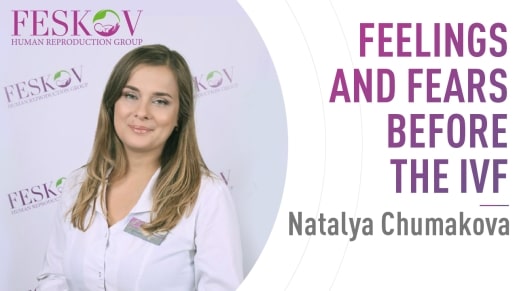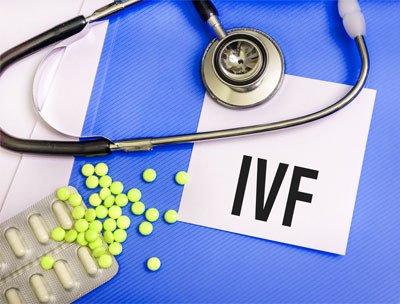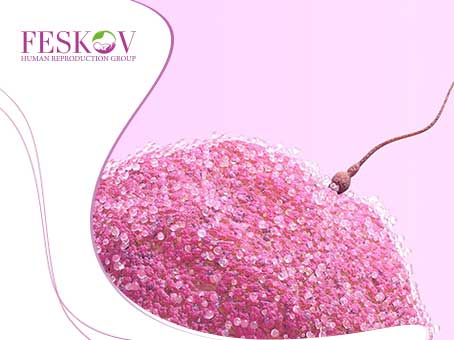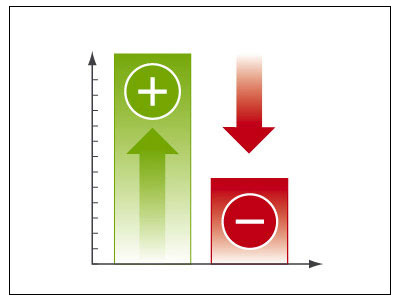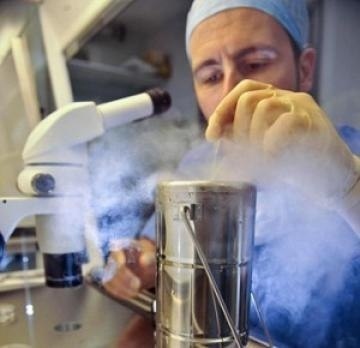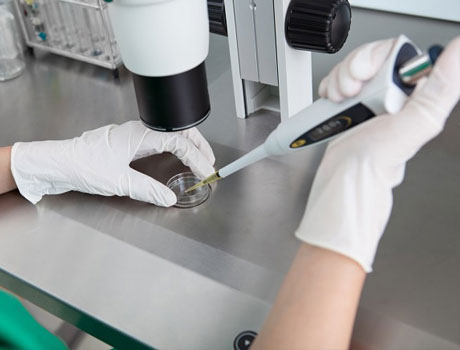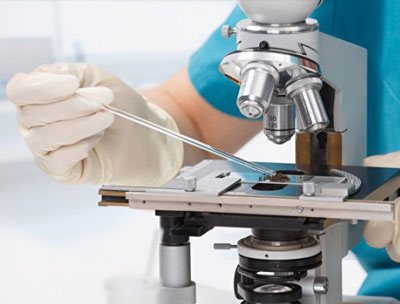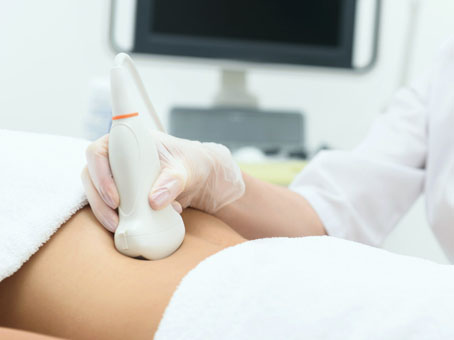

you are interested in

Guarantee IVF package in Ukraine. IVF + PGD (NGS): healthy embryo selection

IVF + PGD (NGS): healthy embryo selection “VIP Guarantee” up to baby birth

Guaranteed IVF + PGD. Prevention of inheritance by child of gene mutations. Choice of child sex.
We will put you in direct contact with the manager of the service you selected. You will be contacted as soon as possible.
- Guaranteed result of IVF programs Unlimited programs IVF + ICSI / IVF + PGD (NGS / Karyomapping) Individual selection of an egg donor with the selection of a donor according to your phenotype The donor database for all races / nationalities Examination of embryo for all anomalies (only healthy embryos are transferable) Creating a perfect generation of healthy offspring Determination of the sex of the embryo on a turn-key basis / creation of the child of the sex chosen by you under the guaranteed conditions Determination of genetic mutations on the embryo Ensuring communication with a surrogate mother (at your request) Observance of full anonymity of genetic parents
all technoogies
- Support for surrogate motherhood and egg donation programs with remote participation A wide network of partner lawyers around the world to simplify legalization issues We conclude a formal contract that is recognized in Europe and the world The possibility of reimbursing part of the payment for your health insurance The package price includes the cost of a surrogate mother Guest services are provided for all our packages Highly qualified medical staff The ability to select an egg donor by photo, video, including using intelligent software search on a donor base Pregnancy management / management of the pregnancy with informing about the condition of the fetus and the surrogate mother
all technoogies
- Childbirth in a private maternity home with coverage of all risks of a newborn child Childbirth in Kiev economy class Childbirth in Kharkov with a full range of perinatal services and covering all risks Childbirth in CZECH REPUBLIC / USA / CANADA / SPAIN / BELGIUM / RUSSIA / UK / AUSTRIA / HOLLAND Provision of guest services while staying in Ukraine: Accommodation / meals / transfer / interpreting services / comfort during the process Full legal support. Multi-level system for protecting the rights of genetic parents. Legal settlement of the process of legalization of the rights on the child before receiving a passport Service of pediatricians and baby-sitters
Natalya Chumakova, gynecologist, ultrasonic diagnostics specialist, fertility specialist, told what feelings and fears are experienced by the clients before the IVF and what factors increase the probability of successful IVF and birth of a healthy child. watch the full video
Package name
Services for fixed amount:
Customers medical consultations & examinations
Genetical examination of Customers
Medications for IVF, medications for pregnancy care
Fertility conditions treatment before IVF
Number of IVF programs to achieve pregnancy
Number of IVF programs with
own eggs
Conversion to egg donation in case of no success with own eggs; egg donation up to pregnancy
Number of embryo transfers
Healthy embryo selection by PGD (NGS)
Sex determination
Sex selection
Pregnancy care
Personal coordinator
Legal services
Guarantee of healthy baby birth
Covered risks
Guest services
Money refunding services
New IVF attempts in case of pregnancy termination after 12th week
IVF services
Healthy baby birth Guarantee
Full range of risks coverage (IVF, pregnancy, legal support)
Own eggs for IVF
Special order for sex of baby
Special order for human genomics
Money back assistance services
Legal support
17 000 EURO
Standard
Standard
+
-
unlimited
Attempts are Limited
Included. Unlimited
Unlimited
+
Included
additional costs
Medical care up to 12th week
+
—
+
Up to 12th week
Comfort class
-
4500 euro
Unlimited
+
-
+
-
-
-
+
28 500 EURO
Full examination
Chromosomes + genes level
+
Moderate conditions care
unlimited
Limited
Included as option Plan B
Unlimited
+
Included
limited number with own eggs
Up to baby birth
+
+
+
Up to baby birth
Business class
+
Free
Unlimited
+
+
+
-
-
+
+
34 500 EURO
Individual
Advanced
+
Advanced cases full coverage
unlimited
Unlimited. Full Guarantee success with own eggs
Included as option Plan B
Unlimited
+
Included as special order
Included sex selection
Up to baby birth
+
+
+
Up to baby birth
Lux / advanced business class
+
Free
Unlimited
+
+
+
+
+
+
+
- How does in vitro fertilization work?
- Advantages to In-Vitro Fertilization
- Disadvantages of in Vitro Fertilization
- Giving Birth to Children after IVF
- In Vitro Fertilization in Ukraine (IVF)
- Which IVF Clinic to Choose?
- IVF vs ICSI
- In Vitro Fertilization Laws In United States
- Court Judgments on IVF
- Does IVF Increase Risk of Cancer?
- Can IVF Cause Ovarian Cancer?
- Does IVF Cause Ovarian Cysts?
- IVF Questions to Ask
Which country is best for IVF?
read moreAs our experience shows, Ukraine is better because there are guaranteed "all-inclusive" programs and modern reproductive methods are available. For example, with the help of genetic diagnostics, you can give birth to a healthy child and get rid of a congenital disease that has tormented your family for decades. If you have difficulties with bearing a child, you can give birth to it with the help of a surrogate mother under the same Agreement.How much does 1 round of IVF cost?
read moreThere is no such thing as one round or transfer. You have a task - to give birth to your baby, and not just make one IVF transfer. Each has its own biological and reproductive potential, which affects the success of pregnancy. Therefore, it is correct to say: how much does the program with the guaranteed birth of your child cost? Such participation starts from 37,000 €.How to increase the chances of successful IVF?
read more80% of success is the embryo and its genetics. Therefore, it is best to do this at a young age, when you should be examined by a doctor and, if necessary, prepare the uterine cavity for successful implantation. If you tackled the issue of reproduction later, then you should create an embryo in a complex, comprehensively examine and perform a high-quality transfer. All other recommendations on the Internet such as nutrition, breathing exercises, and more refer more to complacency, and not effective medicine.How to achieve double ovulation?
read moreFor this, the drug clostilbegit or any drug that stimulates multiple follicle maturation is used. Gonadotropic hormones are also usedHow much does IVF cost in Prague?
read moreA one-time program costs between 3000 - 5000 €. However, Czech clinics and agencies do not have fixed prices, so this amount easily reaches 50,000 ... 80,000 €How to calculate the due date with IVF?
read moreIt is calculated from the day of transfer, which is carried out on the 3rd-5th day (depending on the readiness of the woman and the state of the embryo). In the future, the pregnancy calendar is compiled as standard at the rate of 40 weeks minus these days
